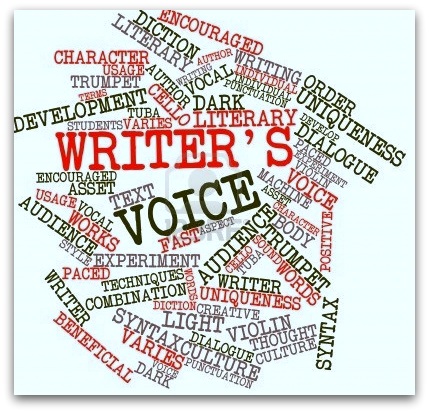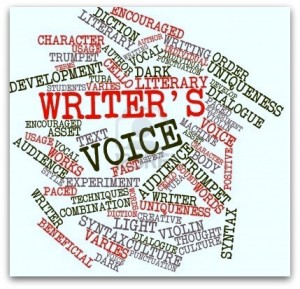


Writer and Internet marketer Aaron Harris notes five good reasons why you should write every day especially if you have a blog or website. His five reasons to keep in shape as a writer are:
Read the rest of Aaron’s article published on the Digital Donut site.
First published in Arts.mic

 By Rachel Grate
By Rachel Grate
The benefits of writing go far beyond building up your vocabulary.
No matter the quality of your prose, the act of writing itself leads to strong physical and mental health benefits, like long-term improvements in mood, stress levels and depressive symptoms. In a 2005 study on the emotional and physical health benefits of expressive writing, researchers found that just 15 to 20 minutes of writing three to five times over the course of the four-month study was enough to make a difference.


Writing is my addiction
People are addicted to a lot of different things; I’m addicted to writing.
In fact, I’m so addicted, that I spent my entire career as a writer and newspaper reporter, and later, an editor.
How addicted was I?
So addicted, that when I retired five years ago, I kept right on writing: stories, essays, memoir, and poetry. Once an addict…
Some people keep their addictions down to a reasonable level – after all, if you only indulge a few times a week, or once or twice a month, who’s going to notice?
But I’m not that laid back; I write almost every day. I’ve tried all the usual things, even going cold turkey, but no matter what I do, I always go back to my addiction.
I have one major piece of advice for my fellow addicts; give in. Admit you’re an addict. As the old saying goes, when they give you lemons, make lemonade. For example, here’s a poem I wrote recently about my addiction:
I’ve learned some wise words that I heed
On how a writer can succeed.
Work hard; the formula will prove
The way to get you in the groove.
Distractions woo us from all sides;
Excuses roll in like the tides.
For best results, here’s what I say:
Do some writing every day.
Sit right down and write a sonnet;
Good or bad, don’t dwell upon it.
The lazy man will take a fall,
But enterprise can conquer all.
Or, start a novel, fiction’s fun,
Your words will flow while writing one.
The true joy’s in the work itself,
Not just some book upon a shelf.
It’s lonely staring at a page
That’s white and empty at first stage,
But think how happy you will feel
When your own words are down for real.
One caution, though, and you’ll agree;
Life gives you choices; nothing’s free.
Ideas may sparkle, shine, and gleam,
But work alone, fulfills your dream.
If you’ve finally surrendered to your addiction, and you plan to use it for positive outcomes, here are a few practical tips about starting:

A quiet place with an uncluttered desk helps the creativity flow.
First, find a quiet place to work; successful writers thrive in solitude, away from the distractions of family, the day job and noise, including music. Silence is a friend to ideas, and their development through writing.
Use the best technology available, making sure that you have a comfortable chair, and plenty of light; sore butts and tired eyes are the enemies of creativity. You can write anything, anywhere and any place, but why set up obstacles for yourself?
All right, you say; so far, so good, but what should you write about? Where do you find your subject?
Write about what you know. If you teach, you know about the satisfactions and disappointments of your profession. Your personal history is filled with people, and events. If you are a sales person, you know all about selling yourself, to sell your product; if you’ve been looking for a job, write about that.
What you’ve learned in life can be a source of inspiration for all sorts of fiction, from detective novels to fantasy. If you decide to write poetry, the gamut of emotions and events you’ve experienced will serve you well.
And don’t be put off by comparing your efforts to those of successfully-published writers. Remember, they started from scratch, just like you. They learned how to deal with rejection letters from publishers, and became successful in spite of rejections; in fact, the experience only made them redouble their efforts; it strengthened their determination.
Once you’ve settled on a topic (Let’s say, for example, you decide to write a short story about your five-year-old’s first day at kindergarten), Stay on topic!
Many new writers get distracted by side issues. You’re writing about your kid; what happened, what he did, what he felt. Don’t start inserting your opinions about the state of education in the United States, or go off on a rant about the relative virtues of home schooling, or go completely nuts, and start writing about a totally unrelated subject.
Dozens of style guides are available, and many of them give conflicting advice. New writers are often confused and discouraged after reading some of them.
Here’s my advice, based on decades of experience:
Keep it simple. That means, use short, declarative sentences and the simplest words you can find to adequately describe a scene or situation. Where possible, stick to nouns and verbs; nothing messes up a narrative more than strings of adjectives and adverbs.
The whole point of writing is communication. Whether you are writing fiction, or reporting a news event, the aim is to let the reader know what he needs to know, as economically as possible. If you adhere to this, the story will almost tell itself.
A lot has been written about “voice”; has the writer found it, does he have a genuine one, what are the nuances of his “voice,” what is his “voice” trying to convey? Does it succeed?
Pundits on all things literary, like to freight “voice” with semi-mystical qualities, and use it to rank writers to make pronouncements about their chances of immortality.
I’ll let you in on a little secret; everyone has a “voice.” Some are pleasant, some not; some, gentle; some sharp. A writer’s voice is nothing more, or less, than the way he or she puts words on the page; if the voice is clear, you’ll understand what he or she is saying, and enjoy the way he or she says it.
One reason why new writers fail is their misunderstanding of what they are trying to do. If you approach writing as a hobby, something you spare half an hour for when you’re not mowing the lawn, or catching a football game on TV, you’ll fail.
No matter how creative you are, no matter how well you write, always keep one thing in mind; like anything else in life that’s worth doing, successful writing takes hard work, and requires commitment.
Every writer worth his salt has a routine which he follows religiously. It doesn’t matter how you arrive at that routine; without it, you’ll just be wasting your time, and anything you produce will show it.
Carve out a block of time each day when you’re most rested and alert. If you’ve paid attention to me so far, you’ve already set up a place to work, and have the tools you need ready at hand.
Before I forget: Solitude is the writer’s best friend; turn off the TV; Shut off the music; have your partner take the kids to the playground; let the robot answer the phone; ignore the doorbell.
Once you’ve established your routine, you have to decide how many hours to devote to your writing. The maximum time to stay focused on a task varies from individual to individual. You’ll have to experiment to discover what that time is for you.
Nothing is more crazy-making than forcing yourself to stay at a job past your ability to perform it well. That’s why airplane pilots, who perform potentially life-endangering jobs, have limits placed on the number of hours they’re allowed to fly.
How will you know when you’ve reached your limit? When you start to squirm in your chair, when your mind starts to wander, when your neck starts to hurt, it’s time to stop and do something else.
Go in the kitchen and make some coffee; take the dog for a walk around the block; or, if you need more than a fifteen minute break, shut off the computer and walk away. When you return to your desk later, or even better, the next day, you’ll be refreshed and ready to go again.
And one more thing: writing is a job that requires work, but work is supposed to be rewarding. Work is not a synonym for torture or drudgery. If you equate writing with those words, then it’s not for you, but if you find pleasure in telling a story well; if you love words, and their power, than sit right down and start to write.
What are you waiting for?
Marc Leavitt is a retired newspaper reporter and editor. These days, he writes poetry on, Marc Leavitt’s Blog, at:
A WRITING RETREAT ON TOPSAIL ISLAND, NC
Winter is a good time to write – less distractions, less daylight and less to do because of the colder weather.
Warm up your writing this winter with a long weekend at quiet Topsail Island in NC at the Winter Beach Writeaway with Mimi Herman & John Yewell.
Because sometimes writers just need to get away.
Spend a long weekend in a cozy house right on the beach, perfecting your poetry or prose with the help of other brilliant writers. The Winter Beach Writeaway is designed for writers of all genres and abilities, from beginner to MFA to professional. $400 per person includes double occupancy lodging, all meals, and wine.
Topsail Island, NC, Feb 27- Mar 2, 2015
For more information, go to www.writeaways.com or email John or Mimi at writeawaysinfo@gmail.com
Not a beach lover? Give your writing a romantic touch – write in France.
WRITEAWAY IN FRANCE
Is your writing missing a certain je ne sais quoi? Experience a week of great writing, authentic French food, and unforgettable ambiance in a 15th century French chateau, complete with 300 acres of vineyards, rose garden, and world famous topiary. Tour Loire Valley wineries (during la récolte!) and celebrate the equinox (Sept. 23) under a harvest moon!
Writeaways are designed for writers of all levels–beginner to MFA to professional. $2,250 per person, double occupancy, full board (including wine and after-dinner drinks), writing consultations and daily classes.
Chateau du Pin, Champtocé-sur-Loire, France, Sept. 21–27, 2015
For more information, go to www.writeaways.com or email us at writeawaysinfo@gmail.com
“One must be ruthless with one’s own writing, or someone else will be.”
-John Berryman
Writeaways founder John Yewell tells about the writer’s retreats he and business partner Mimi Herman provide in France, Italy and the Outer Banks and how they inspire writers to find their muse.
By John Yewell
Go to our Writeaways web site, with its pictures of a centuries-old French chateau and an Italian villa, and your initial reaction is likely to be: What a great vacation! And it is, of a sort. But it is so much more than that.
We created our writing getaways in exotic places to get you as far from your daily life as possible, to set you free from care while giving you the guidance you need to unlock, or unblock, the writer within. We welcome writers of all levels and genres, and now have programs in the Loire Valley, Tuscany, and North Carolina’s Outer Banks.
“I didn’t know until I got busy how essential to the process being removed from my regular life would be. John and Mimi took care of all the necessities, creating a space for us to write and indulging us along the way. The food was amazing!” – Charity, North Carolina
We take care of everything. Each morning in France, you are greeted with a complete breakfast, including fresh croissants purchased before sunrise at the local boulangerie. In Italy, our hosts Patrizia and Paolo serve you continental style.
Afterwards, we engage in our specially designed workshop and private consultations for two hours. Whatever your level of experience, you’ll find the constructive help you need to produce your best work in a cooperative, but rigorous, atmosphere.
“I first met Mimi and John at their writing retreat at Chateau du Pin. While I had a very interesting story I’d thought about writing for years, I did not think of myself as a writer. Thanks to their thoughtful guidance, I finally began writing that story–and I’m still at it. John and Mimi made me believe I could do it, and gave me the tools I needed. I can’t thank them enough.” – Regina, North Carolina
After lunch – buffet-style in France, Tuscan-style in Italy – you are free to write or explore. In France, the chateau is surrounded by 300 acres of topiary, rose gardens, meadows and vineyards. In Italy, you can wander in the olive orchards, sit by the pool, or explore Tuscany as widely as you like. In both locales, we offer tours of the surrounding region, including tastings at local wineries. All of this is included in the program.
In the evening we reconvene for cocktails and wine, then sit down to a spectacular dinner prepared by professional chefs. Afterwards, relax with a digestif or cocktail of your choice in relaxed reflection, surrounded by five-hundred year old walls.
Our program in Southern Shores, on North Carolina’s Outer Banks, is a weekend intensive class designed to jumpstart a dormant writing project or launch a new one.
After people began coming to us and asking if they could put together their own groups of friends and families, we began organizing self-organized getaways. We expect to make the first such trips a reality in France and Italy in the spring of 2015.
We are also developing a Master Class intensive program, which would be limited to two students for a week in Beaufort, NC.
Writeaways is based in Durham, North Carolina, although our students have come from all over: Texas, Wyoming, Virginia, Canada. Our long-term plan is to create writing getaways in the kinds of places people dream about going, so that we can pair that dream with their own desire to become better writers.
Mimi and I are both writing professionals with complementary backgrounds. Mimi Herman has taught over 20,000 students to fall in love with writing, especially their own. A Warren Wilson MFA graduate, her teaching style captures students’ imagination and creates a supportive learning environment. As one student said of her time with Mimi, “It is an experience that I will hold with me throughout my whole life.”
I am a writer and editor with an MFA in fiction from San Francisco State University and twenty years of experience in journalism. I teach a memoir class in Durham and consult as a private editor and writing coach.
For more information, please go to www.writeaways.com, or write to us at writeawaysinfo@gmail.com.
Well, yes, because the lovable, popular Geico Gecko has written and illustrated a book called You’re Only Human: A Guide To Life, released today by Workman Publishing for $11.95.
Bloomberg Businessweek online quoted Workman saying the Gecko “has spent the last few years traveling across America, like a modern-day de Tocqueville.” What’s more, it adds:
“He’s a philosopher, an aphorist, a humorist, an artist, a warm companion, a natural storyteller—and, in a grand tradition, a keenly observant and wise outsider who in the course of living and traveling among us has discovered quite a lot about the things that make us human.
“He makes curious and interesting observations on everything from dreams to job interviews to adversity, Twitter to the Golden Rule (it’s not what you think it is) to talking animals: I’m really not sure what all the fuss is about. Lots of animals talk, including humans. The bigger question is, what do you have to say worth listening to?”
See the trailer on YouTube.
http://youtu.be/gnRKMt6LI4k
Available at bookstores everywhere.
________________________________
As more and more authors turn to self-publishing, a new trend is emerging that may benefit publishers as well as authors.

Successful crime novelist Joe Konrath is probably the author who started this new trend and is the poster child of successful authors moving into the self-publishing realm.
According to an article in The Star-Telegram online written by Alex Pham of The Los Angeles Times,
“Joe Konrath can’t wait for his books to go out of print.
When that happens, the 40-year-old crime novelist plans to reclaim the copyrights from his publisher, Hyperion Books, and self-publish them on Amazon.com, Apple’s iBooks and other online outlets. That way he’ll be able to collect 70 percent of the sale price, compared with the 6 to 18 percent he receives from Hyperion.
As for future novels, Konrath plans to self-publish all of them in digital form without having to leave his house in Schaumburg, Ill.
‘I doubt I’ll ever have another traditional print deal,’ said the author of Whiskey Sour, Bloody Mary and other titles. ‘I can earn more money on my own.'”
Mr. Pham goes on to write, “It’s difficult to gauge just how many authors are dumping their publishing houses to self-publish online, though for now, the overall share remains small. But hardly a month goes by without a well-known writer taking the leap or declaring an intention to do so.”
However, Mr. Konrath is one of the exceptions to successful self-publishing because his fan base was primarily created by the marketing and distribution efforts of traditional publishing houses.
Does that mean an author needs to be published by a traditional publishing house to be successful later in self-publishing?
Not at all.

Mr. Konrath just stood up on his surf board and is about to catch one of the largest new waves in publishing. He knows where his readers are and how to read them – online where most hang out.
As an aspiring or first-book author who is relatively unknown, you need to market your work to where people seek, read, recommend and review books – in social media: Facebook, Twitter, NING, Linkedin, Foursquare, Goodreads, and all the other social networking sites out there.
There is only one problem. By the time you learn how to effectively market your work on all the social media, you may be in an old-age home especially if you are not so computer savvy. Besides, when would you have time to write another book?
Most authors just want to write. They don’t want to wear six or seven hats and be the marketing guru, the sales superstar or the promotional genius.
This is where publishers can get their own surf board and ride the same wave as Mr. Konrath. But some are just standing up on their boards, others are knelling and most don’t even see the social media wave.
Publishers can offer social networking services, electronic distribution and all the perks of traditional publishing to authors in digital and electronic form. This is a wave that is coming whether publishers like it or not so the best strategy is to make sure to have a surf board and to look out over the horizon. This publisher is certainly standing on his surf board poised to ride the next giant wave.
Ok, if you think this idea is off the wall consider this: if a programmer leaves out a single character or adds an extra character, the program will not work as intended.
Writing in essence is the same. If you don’t craft your words, sentences and paragraphs properly, your intended message does not come across.
Programming is a lot easier than writing – it’s exact – XYZ code tells the computer to execute a specific function. The computer does not have an opinion about the code and the code does not have several meanings.
Writing, on the other hand, is more complex. Words have different meanings for different people. The structure of a sentence or paragraph may have one meaning for one person and different meaning for another.
But if the writing has the right flow, the right words and the right structure it is like great poetry. That’s why we hear statements like, “The writing works! The writing pulls you in! I just love the writing!” It is the stuff of the classics and more.
So what exactly is the right stuff – the stuff of classics, the magic of the writing? My take is that the writing communicates universal truths, truths that are common and important to all human beings. The universal appeal of these truths is so powerful that the writing lives on generation after generation, century after century.
More importantly, the writing drips with emotion. Words can stir our deepest hopes and dreams, our imaginations, our inspirations and they let us dance in the joy of the things we love.
It’s not easy getting words to do all those things, but as writers we always try. So if you can get the right “programming” for your words, you will write a classic that will live on and on.
Try doing that with a computer.